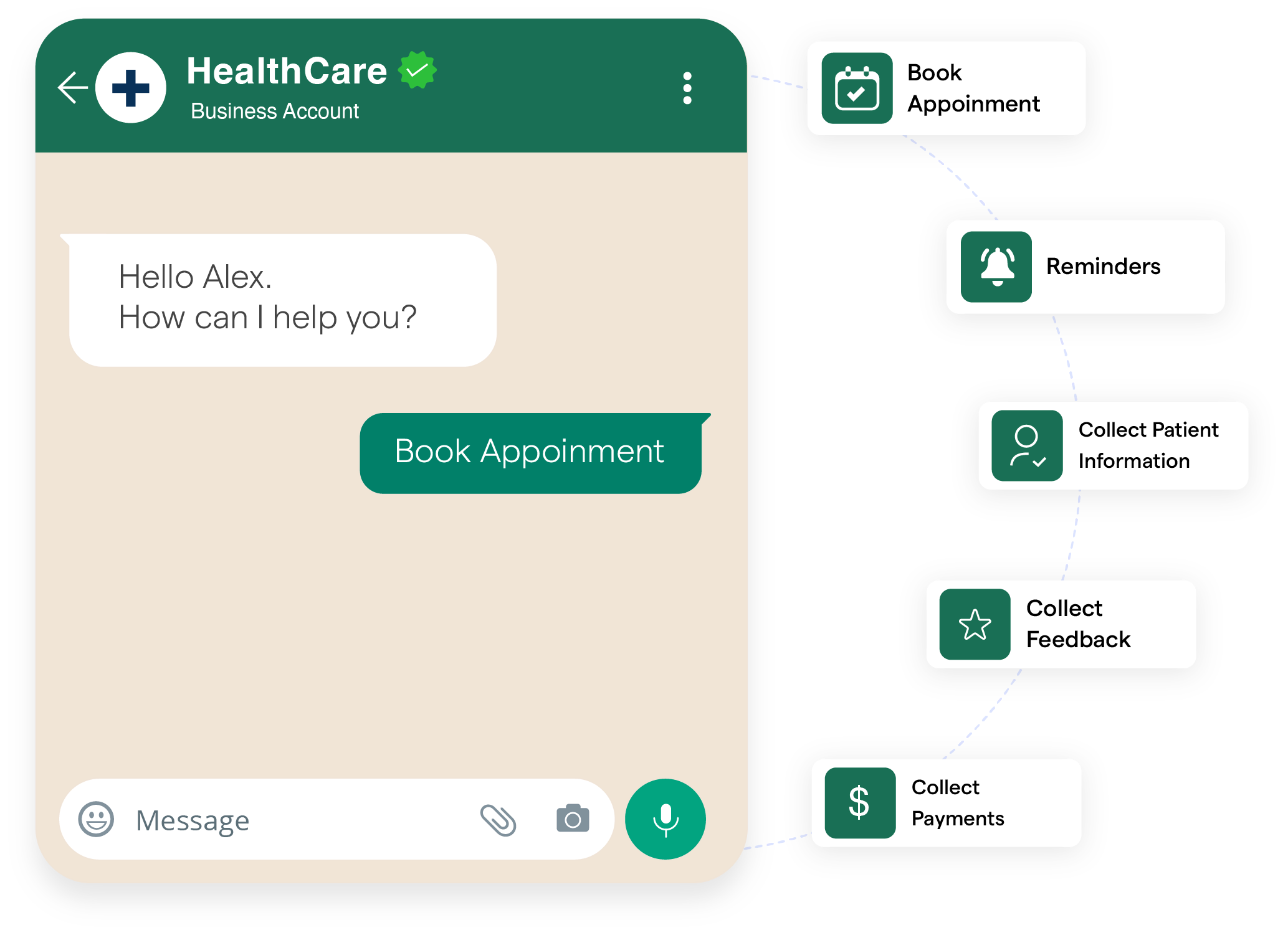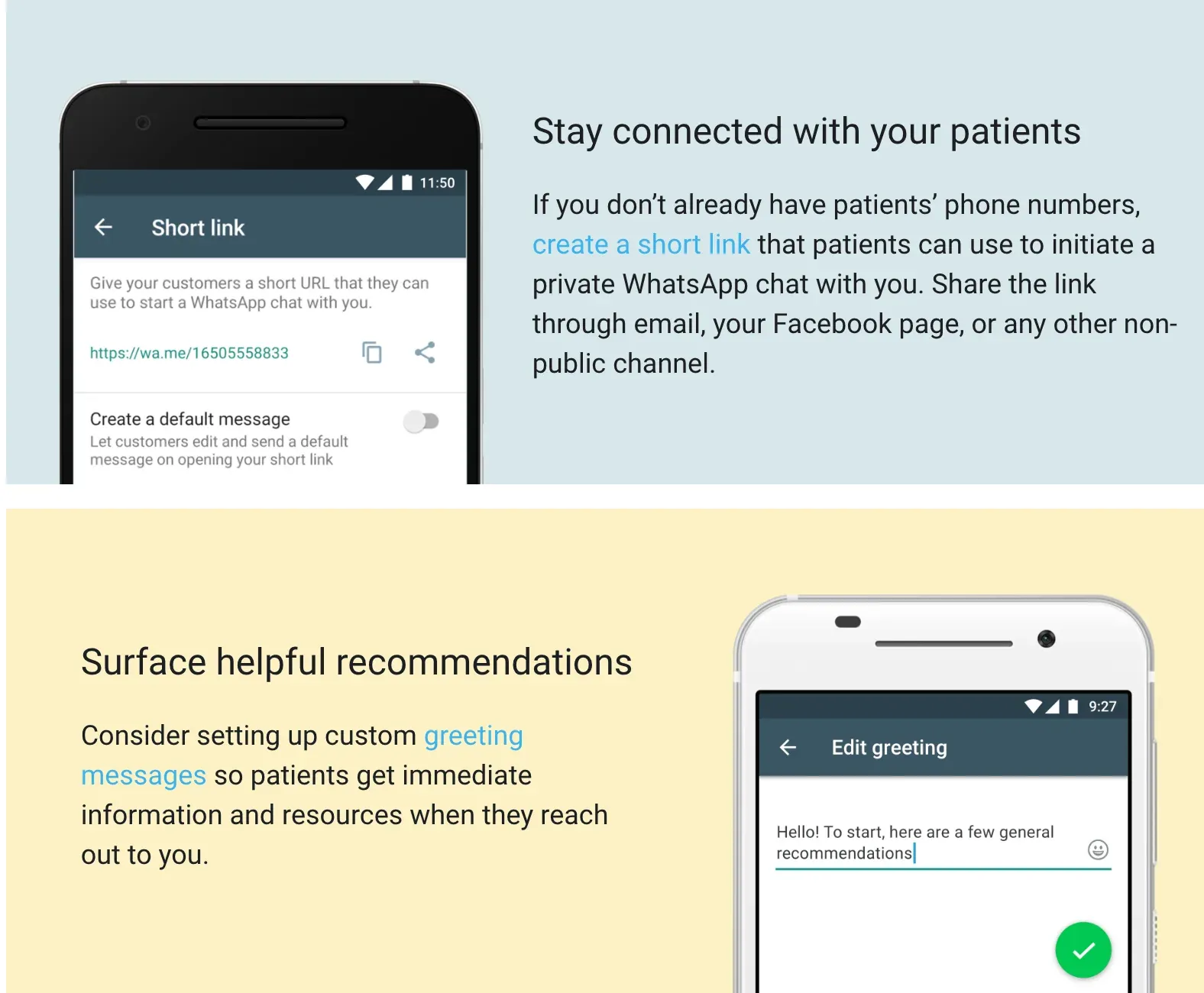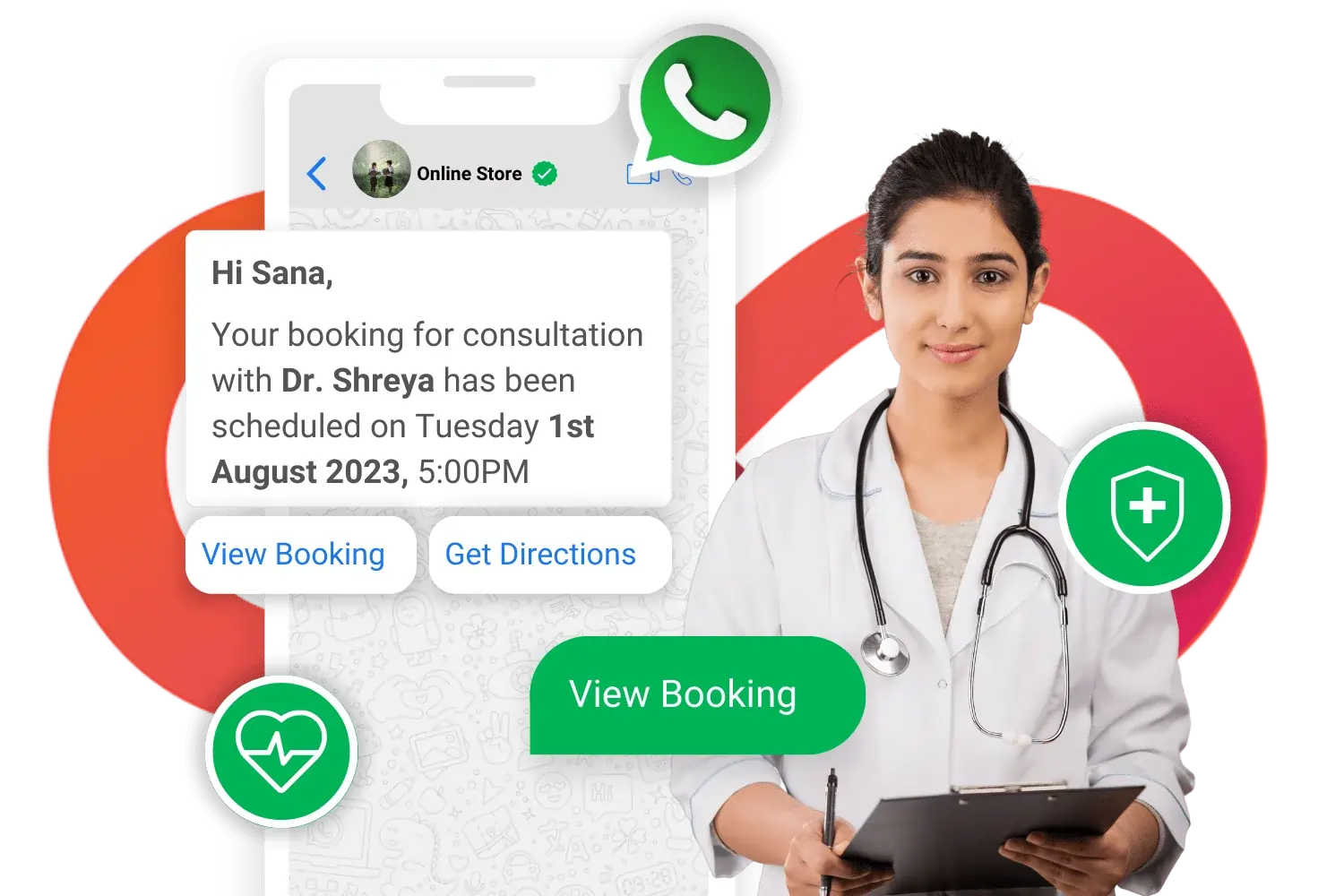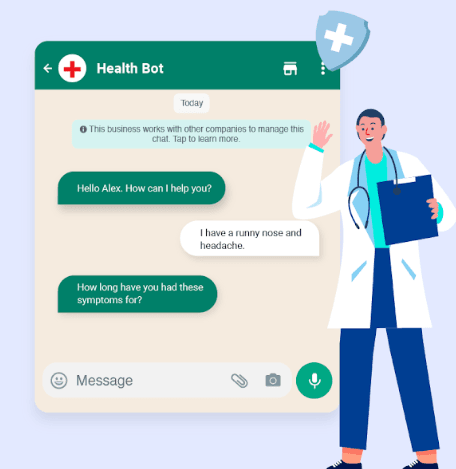Introduction
In an era where instant connectivity is synonymous with progress, the integration of WhatsApp in healthcare stands as a beacon of transformation.
Recent statistics from a global survey conducted by Accenture revealed that over 70% of healthcare professionals have adopted messaging apps like WhatsApp for patient communication and coordination [Accenture].
This surge in adoption underscores the pivotal role such platforms play in reshaping healthcare dynamics. As of Statista, users have exceeded 2 billion globally, making it an unparalleled medium for healthcare providers to bridge gaps and offer personalized care.
The power of instant communication is not just a convenience but a catalyst for efficient healthcare delivery. Patients find solace in the immediacy of messaging, and healthcare providers witness streamlined workflows and improved patient engagement.
Continue reading to know more about the transforming healthcare with WhatsApp.
The Power of WhatsApp in Healthcare
WhatsApp for Healthcare offers a wide range of features that make it an ideal platform for healthcare communication. From its simple user interface to its end-to-end encryption, the app provides a secure and user-friendly experience.

Due to this WhatsApp healthcare revolution, healthcare professionals and patients can easily access important information.
They can also collaborate on treatment plans, and even monitor patients' progress right from their smartphones.
Connecting Patients and Healthcare Providers
WhatsApp is transforming healthcare by bridging the gap between patients and healthcare providers.
With the ability to send text messages, images, gifs, and videos, patients can easily communicate their symptoms and concerns to their doctors.
This direct line of WhatsApp-healthcare communication saves time, reduces waiting periods, and enables more personalized care.
Teleconsultations Made Easy

In recent times, teleconsultations have gained immense popularity due to their convenience and safety.
WhatsApp has become a popular platform for conducting teleconsultations, enabling doctors to diagnose and prescribe treatments remotely.
Patients can share their medical history, symptoms, and even images providing doctors with the essential information to make informed decisions.
Ensuring Privacy and Security
Privacy and security are critical in healthcare. WhatsApp's end-to-end encryption ensures that sensitive medical information is safeguarded from unauthorized access.
This encryption gives patients peace of mind, knowing that their data is secure and cannot be intercepted by third parties.
Collaborative Treatment Planning
WhatsApp's group chat feature has become an invaluable tool for collaborative treatment planning.
Healthcare providers can create groups to discuss complex cases, share insights, and seek input from colleagues across different specialities.
This collaborative approach towards WhatsApp healthcare management ensures that patients receive the most comprehensive and well-rounded care possible.
Streamlining Information Sharing

In healthcare, timely and accurate information sharing is crucial.
WhatsApp provides a platform for healthcare providers to share important updates, guidelines, and research findings with their colleagues.
This real-time information exchange enhances the quality of care by keeping healthcare professionals up-to-date on the latest advancements in their respective fields.
Suggested Reading:
Streamline Healthcare Consultancy with WhatsApp Chatbot
Patient Education and Support
Education and support are key components of effective healthcare.
With WhatsApp, healthcare providers can easily share educational resources, such as articles, videos, and infographics, with their patients.
The WhatsApp healthcare revolution empowers patients to take control of their health by providing them with the necessary knowledge to make informed decisions about their treatment and lifestyle choices.
Monitoring and Follow-Up

WhatsApp healthcare management also offers useful tools for monitoring patients' progress and ensuring follow-up care.
Healthcare providers can set reminders for patients to take their medications, follow specific instructions, or attend follow-up appointments.
This helps to improve compliance and ensures that patients receive the necessary support and guidance throughout their treatment journey.
Suggested Reading:
Integrating Chatbots into Healthcare System: How-To Guide
Remote Patient Monitoring
For patients with chronic conditions or those requiring continuous monitoring, WhatsApp for Healthcare can serve as a remote patient monitoring tool.
Patients can share vital signs, such as blood pressure readings or glucose levels, with their healthcare providers, who can then provide timely feedback and adjustments to their treatment plans.
This remote monitoring capability saves patients the hassle of frequent clinic visits while still receiving the necessary medical attention.
Conclusion
In conclusion, the transformative potential of integrating WhatsApp into healthcare systems is evident in its ability to foster enhanced connectivity, communication, and healing.
This messaging platform's seamless integration has effectively bridged healthcare delivery gaps, enabling instant communication between healthcare professionals, patients, and even remote specialists.
The chat-centric nature of WhatsApp has proven instrumental in simplifying consultations, follow-ups, and the dissemination of medical advice. It fosters a more patient-centric approach to healthcare.
In the dynamic landscape of healthcare evolution, BotPenguin emerges as a game-changer, seamlessly integrating with WhatsApp to redefine patient interactions.
By leveraging the power of AI-driven chatbots, BotPenguin enhances patient engagement, delivers real-time health information, and ensures a smoother healthcare journey.
The chatbot's ability to provide instant responses, appointment reminders, and health tips significantly enhances patient adherence to treatment plans.
This not only improves health outcomes but also lightens the administrative burden on healthcare professionals.
Moreover, BotPenguin's language processing capabilities transcend linguistic barriers, fostering inclusivity in healthcare communication. Patients can comfortably converse in their preferred language, fostering a sense of understanding and trust.
As we embrace the era of digital health, the "Connect, Chat, Cure" mantra encapsulates the essence of WhatsApp's role in transforming healthcare delivery.
This technological integration optimizes existing healthcare processes and lays the foundation for future innovations.
Freqently Asked Questions (FAQs)
What is WhatsApp and how is it being used in healthcare?
WhatsApp is a popular messaging app that allows secure and instant communication. In healthcare, it has revolutionized patient-doctor communication, allowing doctors to provide virtual consultations, share test results, and answer queries.
Is WhatsApp a HIPAA compliant platform for healthcare communication?
While WhatsApp itself is not HIPAA compliant, healthcare organizations can use a HIPAA-compliant version of WhatsApp called "WhatsApp Business API" or use third-party solutions that ensure compliance by encrypting patient data and maintaining secure servers.
How can healthcare professionals use WhatsApp for remote patient monitoring?
Healthcare professionals can use WhatsApp to remotely monitor patients by sending them reminders for medication, tracking symptoms, and providing personalized care instructions.
Patients can also share vital signs data and receive real-time guidance from doctors.
Can medical records be safely shared on WhatsApp?
Safely sharing medical records on WhatsApp requires taking precautions.
Healthcare professionals can either utilize end-to-end encrypted solutions, upload documents to secure cloud platforms and share links, or use secure document-sharing features within secure WhatsApp versions.
What are the benefits of using WhatsApp for healthcare communication?
Using WhatsApp in healthcare communication offers benefits such as improved patient engagement, reduced patient wait times, increased accessibility to healthcare advice, cost-effectiveness, and convenience for both patients and healthcare providers.
What are the potential risks and challenges of using WhatsApp in healthcare?
Some potential risks of using WhatsApp in healthcare include data breaches, privacy concerns, lack of control over forwarded messages, and the potential for miscommunication due to the limitations of text-based interactions.
Implementing proper security measures and policies can mitigate these risks.


